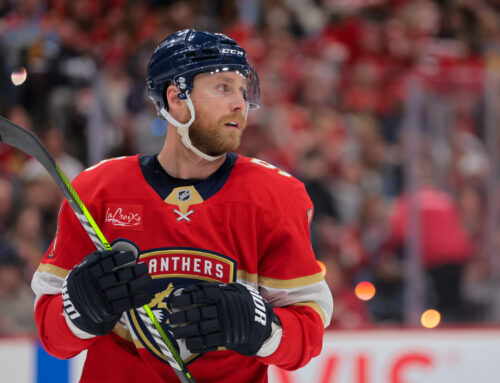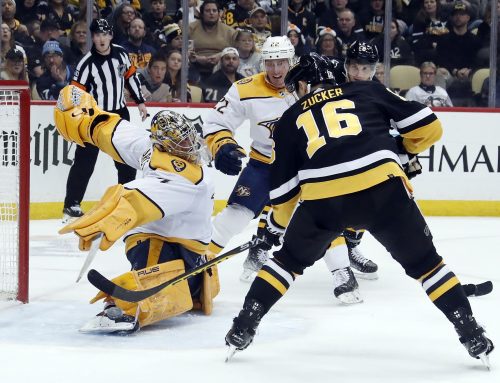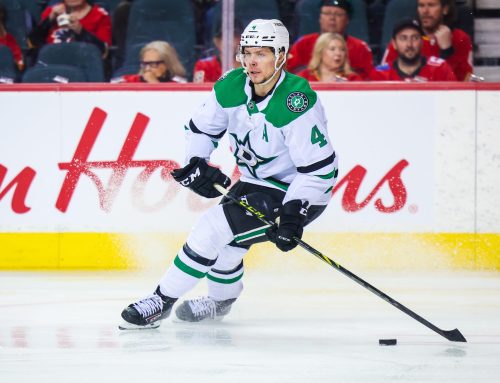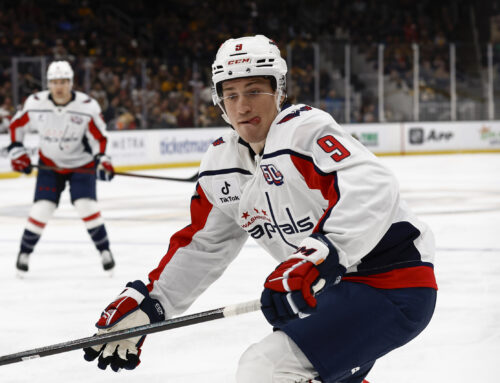
How the Blue Jackets and Maple Leafs found a match in Clarkson for Horton.
On February 26th, the near impossible happened; the Toronto Maple Leafs found a taker for their "immovable" contract belonging to David Clarkson. Also, the Columbus Blue Jackets found someone who was willing to trade for the likely permanently injured Nathan Horton. It was like a perfect storm, two massive free agent mistakes coming together to create one sunny day for two teams looking for help. In this weeks Capped, we will take a look at the Leafs-Blue Jackets trade that had the hockey world buzzing on one crazy day and the cap circumvention that took place to make both sides happy.
*
David Clarkson signed with the Toronto Maple Leafs as an unrestricted free agent in the summer of 2013. At the time, he was probably one of the most desirable free agents available. He chose to sign with the team he grew up idolizing and his father couldn't have been more proud. At the time of his signing, his father was quoted as saying:
"Like a dream come true. When he first signed with the New Jersey Devils, I was waiting for the day he'd come back here."
Clarkson got a seven-year contract from the Leafs for a total of $36.75M, an annual cap hit of $5.25M. Leafs Nation was jumping for joy on that day. That day would be short lived.
Coincidentally, earlier on the exact same day that David Clarkson was signing his mega deal with the Leafs, Nathan Horton signed his big free agent contract with the Columbus Blue Jackets, leaving the Boston Bruins. Horton had played three years in Boston and was a key contributor in their Stanley Cup winning playoff run in 2011. Shortly after the deal was announced, it was released that Horton would require offseason shoulder surgery and that he probably wouldn't be ready to play for Columbus until late in the calendar year. At the time, Horton was quoted as saying about his pending surgery:
“I’ve just been kind of waiting to get it done. I’m definitely going to have surgery. Hopefully in the next week, early week, we can figure that out and get something done, and the sooner the better. I think the recovery is four to six months. I’m hoping four, and I think everyone else would in my situation. I just want to be 100 percent and come back and never have a problem with it again.”
Horton signed a seven year contract for $37.1M, an annual cap hit of $5.3M with Columbus and GM Jarmo Kekelainen thought he just found his new power forward with offensive skills. That thought would be short lived.
*
Needless to say, it doesn't sound promising. At some point in time, Horton will have to face a decision on whether to have surgery on his back or not. The surgery would see Horton getting up to four of his vertebrae fused with a titanium rod. If he does have the surgery, it would allow him to live a normal life and be active, but not physically active where he would be able to play a hard hitting sport like professional hockey. Horton is still holding off on the surgery, hoping for a miracle that will allow him to resurrect his playing career.
*
Two bad contracts and two different teams with a different goal in mind. The Toronto Maple Leafs is one of the leagues wealthiest teams and the Columbus Blue Jackets pinch every penny they have. Enter the perfect storm. A circumvention of the league's salary cap that not only helps out both teams fix a problem, both teams can say they did it by the books. The Leafs simply wanted to rid themselves of one of the team's worst ever signings and the Blue Jackets couldn't afford to pay a guy who was likely never going to step on the ice again.
For the Columbus Blue Jackets, this trade was all about getting something for the money being spent. They didn't have insurance on Horton's contract so he was going to receive a pay cheque from them whether he was playing or not. Clarkson isn't a bad hockey player; he was just paid more than what he was worth and that brought expectations that were simply too high. The Blue Jackets are willing to pay too much to a guy who is actually going to play for them. They are seeing a return on their dollar, and while the return isn't really worth the money, it's at least something. That's more than they would ever get from Nathan Horton.
The Maple Leafs on the other hand don't care about the $5.3M they are now going to pay Nathan Horton for the next five years to deal with his issues. The Leafs were willing to pay Horton not to play in order for them to rid themselves of a bad contract in Clarkson. They will put him on the LTIR and free up the cap space being taken by Clarkson, allowing them to find other ways to spend the $5.25M Clarkson was costing them. The issue the Leafs may face down the road is if Horton is somehow able to return from this injury. I doubt it ever becomes an issue but it's something the Leafs have to keep in the back of their mind at all times. I guess they will have to deal with that when, and if, it ever comes to fruition.
*
There was a loophole in the CBA and the Toronto Maple Leafs and Columbus Blue Jackets found it and are using it to both of their advantage. Bravo to both teams for finding a way to make two bad contracts work for their franchises. I am sure this loophole will be worked on when the CBA comes up for renegotiations again in a few years. For now, both teams will enjoy what they have. The Blue Jackets get a tangible asset for their money and the Leafs get rid of an under-performing over-paid player and cap space.
In the end, both teams seem to get what they want and any time a trade happens, that is normally the most important thing.
The Final Word
I think this is a fresh start for David Clarkson. I do like him in Columbus and I think he will be a better fit for their young team going forward. I am sure their expectations won't be nearly as high as those in Leaf Nation after he signed there. It shouldn't be as hard for him to exceed any expectations he bring with him, thus making him look like a better asset in Columbus than he ever was in Toronto.
As far as Nathan Horton goes, it will just be a matter of time before he finally comes to the realization that in order for him to live a somewhat normal life going forward, he needs to get the surgery done. I hope he can soon see and accept his professional hockey days are behind him. It's hard letting go of your dream and probably one of the few things you have known all your life. I hope he finds peace in his decision to move forward with his life after hockey.
****
Thanks for reading and feel free to leave a comment. Also, you can follow me on twitter – @chrispudsey





 PHI
PHI TOR
TOR ANA
ANA NYI
NYI BUF
BUF CGY
CGY VAN
VAN CAR
CAR STL
STL MTL
MTL BOS
BOS
